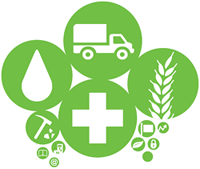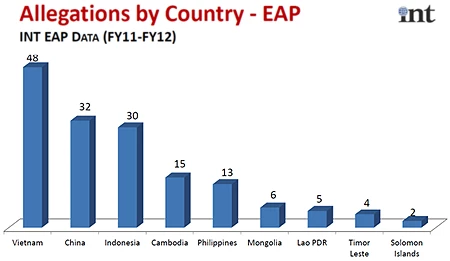 It’s difficult to do a background check of a company based in a foreign country with operations overseas.
It’s difficult to do a background check of a company based in a foreign country with operations overseas.
It’s difficult to check to see whether a document is falsified or not.
It’s difficult to …
I heard a lot of that from the audience of the workshop on World Bank’s Anti-Corruption Framework & Common Integrity Risks in World Bank-Funded Projects in Hanoi recently. Majority of the participants were project managers and procurement staff from Project Management Units managing World Bank-funded projects.
Presentations from the Bank’s Integrity Unit show that corruption increases costs, reduces quality, delays impacts on poverty, creates public disgrace and even generates social instability. For a person who often has to look at results of development projects like me, corruption eats into the meager meal of the ethnic minority people in the northern mountainous areas of Vietnam, takes education away from girls in learning age, and lower the quality of hospitals for old people in Mekong river delta.
But how much does corruption cost us every year? According to a World Bank estimate, between $1 trillion and $1.6 trillion are lost globally each year to illegal activities. That’s equivalent to more than three years of meals for all the world’s 1.3 billion poor people who still live on an income of about $1/day.
Are people taking it seriously? Data from the Integrity Unit shows that people are taking action against corruption in the East Asia and Pacific region, especially in Vietnam—which has the highest number of allegations submitted to the Integrity Unit (48). There are different ways of explaining this high number, including that there are better mechanisms and systems in place for people to report corruption, and there may also be more corruption cases in Vietnam than in other places. Regardless of the explanation, the figure shows that more needs to be done.
Almost all of the questions raised at the workshop shows that people understand the need to fight corruption. The question is how and not why. Understanding the different facets of negative practices helps (including fraud, corruption, collusion, coercion, and obstructive practices), but practical solutions are needed as well.
Vietnam is stepping up its fight against corruption. The National Assembly (Parliament) is discussing amendments to the Anti-Corruption Law to make sure the legal system is enhanced. The central committee of the ruling Party met last month and one of the key item on the table was how to ensure the State money wouldn’t go to anyone’s pocket. Project managers in Vietnam understand this very well, since they are often Party members and also high ranking officials in the government system.
The World Bank Group president says that fighting fraud and corruption is a vital responsibility. As a long trusted partner, the World Bank in Vietnam considers governance as a key cross cutting theme in its strategy for the country. So far, the total World Bank’s commitment to Vietnam has been over $15 billion, and people in that conference room do not want a single penny of it to go to unwanted purposes.
To this effort, the Bank has enforced its work on anti-corruption, debarred and made public companies that were involved in sanctionable practices, instituted cross-debarment with other international development organizations, and cooperated with local anti-corruption agencies.
But let us know: do you have solutions to the question of HOW?



Join the Conversation